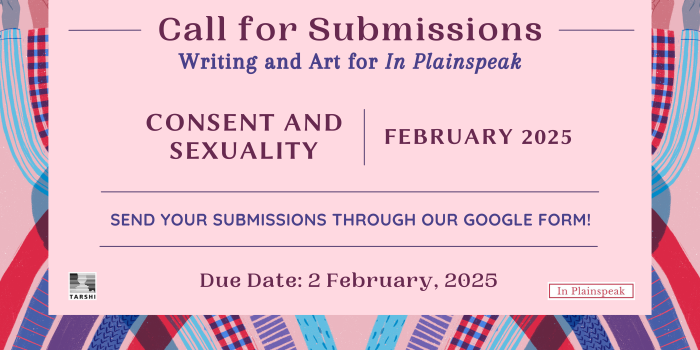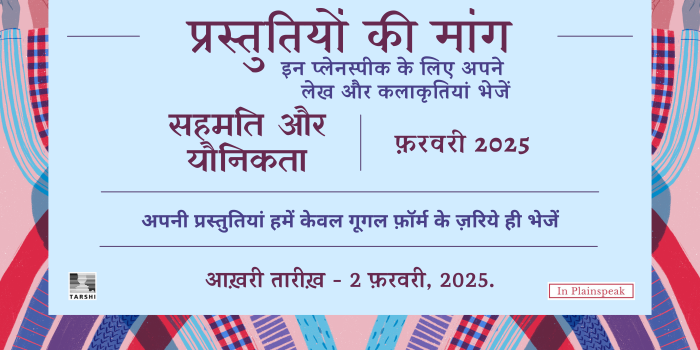
Happy New (another) Year! We hope it has begun well for you. Some of you might be of the opinion that another year brings no cause for gladness in times where so much is going wrong, but the fact is – we are still alive! And that itself gives occasion for celebration, and also for thinking out of the box. The ‘same old, same old’ has not made the world a kinder, gentler place where each of us is valued for who we are. It is time perhaps to go off the beaten path! So here we are with a selection of previously published In Plainspeak articles that do just that.
Let’s jump right in! In this ‘purpose–driven’ world (to what purpose, one wonders), Shweta Krishnan asks what happens when one takes away the reproductive functionality of sexuality and instead inserts play and playfulness. Drawing on orchids and their pollinators, Japanese anime movies and old Hindi movies, amongst other examples, Shweta takes us on a celebration of purposelessness, play and pleasure to reveal just how revolutionary ‘useless’ fun can be. Maybe this could be our approach to 2025?
Radhika Vaz, stand up comedian and revolutionary, tells Shikha Aleya about her craft, about Suzy who #refusestowearpants and about how humour shows up that which people often refuse to see. Gitanjali talks to three women about how they wish to experience desire and they tell her that what’s missing is “the experience of letting their guard down to feel a sense of adventure accompanied by a healthy dose of risk taking, uncertainty and butterflies in their stomachs.” That’s perhaps what we all want, and is also part of the allure of kink. Contributor iwonderwhy shares observations and analyses about bodies seen through a kinky lens and how the space at the 2023 KinkCon made it possible for kinksters to come home to themselves.
Jaya Sharma writes about how taboo is at the heart of desire, how it drives our fantasies, and how seemingly politically incorrect fantasies may well challenge but ultimately strengthen feminist politics. Asmi reflects on the people and experiences that guided her navigating the online phase of her journey into BDSM in the days before social media as we know it now, and the wisdom, care and love she found in her explorations.
Sheena D’Lima writes evocatively about a garden she used to play in as a child and the garden she now takes her child to. A patch of grass to place one’s feet on. Why? “I give up my tired notions of productivity, of hustle culture. You don’t have to produce constantly to be of value… You just have to come as you are and that is enough.”
Vani Viswanathan talks about filter coffee, marriage and mixed celebrations of sexuality as she rides the crests and troughs of negotiating life with a partner and finds that in the maddening swirl of feminist idealism resisting societal expectations, being kind to oneself keeps one afloat.
For pure joy, Manak Matiyani uncovers the delight and delicious ribaldry in women’s songs of celebration of marriage, and leaves us with an unexpected gift of a song collection. A note of apology here for our non-Hindi readers: too much was getting lost in translation, so forgive us if there are parts you do not understand!
And now for some books to further expand our horizons and turn things topsy-turvy. Rajeev Anand Kushwah recommends Jack Halberstam’s book, The Queer Art of Failure, for those of us looking for an alternative vision of life, love and labour. Ishan reviews Amrita Pritam’s Dilli ki Galiyaan and finds it “offers us a broader canvas for our desires, than the one afforded by the clear cut binaries of our current debates.”
In Hindi, we have three translations for you: Smita Vanniyar’s article about how queer women in India use the Internet to meet other women and redefine what community means, Muskan Nagpal’s article about what lipsticks and their stains offer, and Neel’s article about playing with the grammar of gender.
That’s it from us for now. Get off the beaten path and play more in 2025!


Cover Image: Federico Sáez for ArtistsForClimate.org.